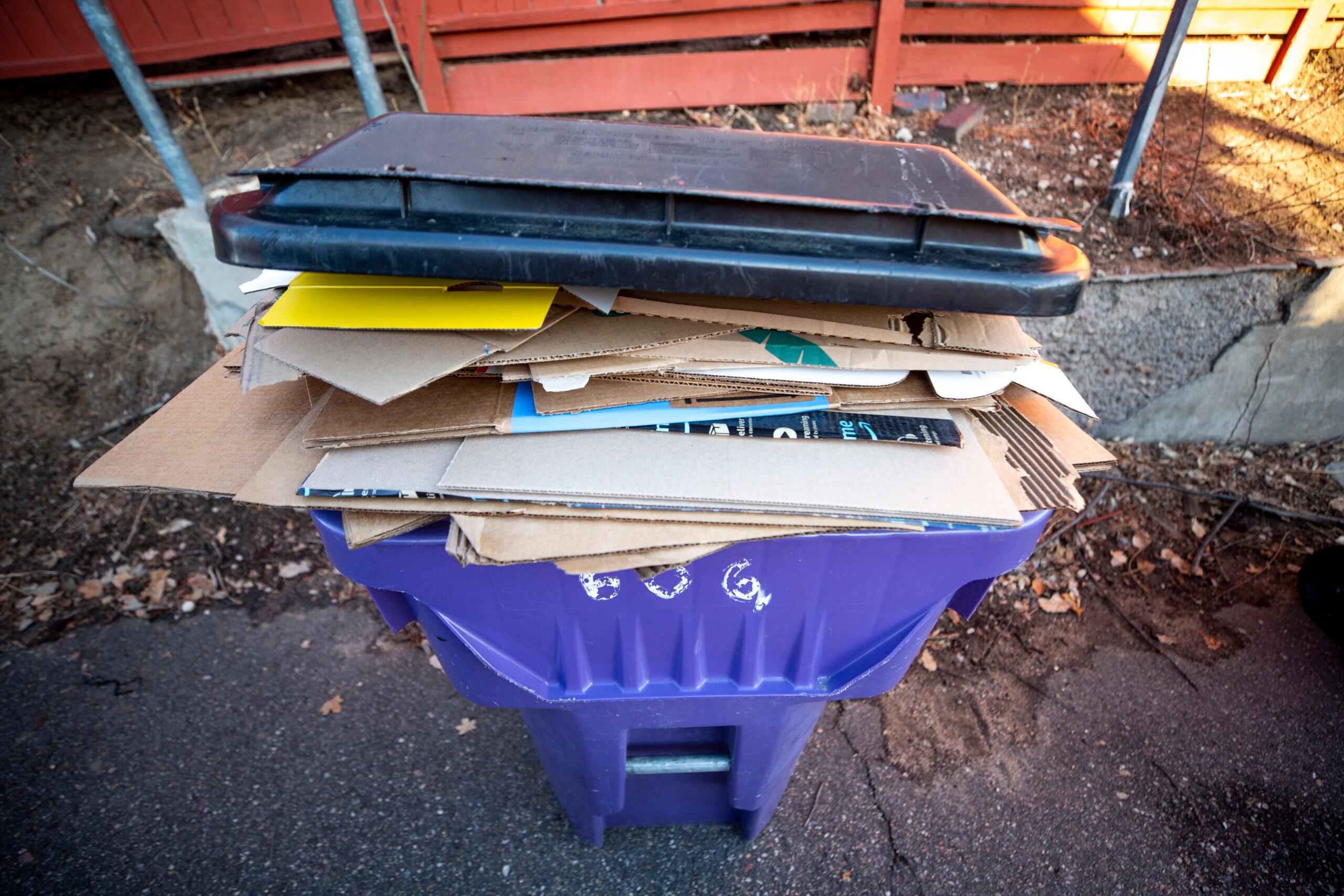It's January 2023, which means Denver's new "pay as you throw" trash policy is now in effect.
A split City Council approved the policy last summer, after years of advocacy from climate activists to implement the change. The policy is meant to incentivize residents to recycle and compost more and keep trash out of landfills.
Proponents of the policy cited data that Denver diverts less waste than the national average, and that the city should have a hand in pushing behavior change to benefit the environment. Some council members said they received many constituent calls against the policy, while opponents argued trash services should be free and that fees could hurt older and lower income residents.
Last November, the auditor's office released a report with concerns that the city was not ready to implement the policy in time due to staffing issues. But Council passed a contract with a private company last month meant to address capacity concerns.
With the program now rolling out, here's what you need to know:
Starting this year, the city is charging residents a fee for trash pickup, eliminating the $9.75 fee for composting and increasing recycling pickup from every two weeks to weekly.
Trash pickup fees vary based on cart size:
- $9 per month for a small 35-gallon cart, which holds up to 3 trash bags per week
- $13 per month for a medium 65-gallon cart, which holds up to 5 trash bags per week
- $21 per month for a large 95-gallon cart, which holds up to 8 trash bags per week
Residents can change their cart size online, by calling 311 or in person at 2013 Osage St. Tuesday through Saturday from 8 a.m. to 2 p.m. The new fee amount will automatically take effect once the new cart arrives. People can pay online through an account with Denver Utilities Online, or by check after receiving an invoice in the mail.
Neighbors and multi-unit buildings can share carts, but all units still have to pay a collection fee. If sharing carts, the residence receiving the cart will be charged based on the size of the cart, and all other units will be charted the minimum $9 fee. You won't pay less if you opt out of recycling and composting.
All these changes only apply to people living in buildings with seven or fewer units. If you live in a larger apartment building with more than seven units, it's considered a commercial building, and won't be subject to "pay as you throw" changes. But you will see a new recycling and composting requirement in the future, after voters passed a ballot measure in November that applies to commercial buildings.
Households that need financial assistance can qualify for rebates.
Assistance is based on income and the number of people in a household. People can check their eligibility and apply online here, by emailing [email protected] or by calling 720-944-3350.
Because free composting services will not roll out until this summer, any households that do not already have composting bins will receive a $9 credit on each quarterly bill, until compost carts arrive. Households with composting will stop getting charged for the service.
Property owners are on the hook for the new charge, but can assign the bill to tenants.
The city says renters should talk to their landlords about what size trash cart they want. Landlords can also make tenants the bill-to account holder so that they can make payments themselves. But landlords should keep in mind that properties with unpaid bills will be subject to a lien after $200 in unpaid bills are accrued and they are 90 days past due.
Zach Neumann, CEO of the Community Economic Defense Project, advocates for tenant rights. He said landlords cannot charge tenants for added trash collection costs if it's not already included in their lease.
"Tenants are only responsible for paying the charges they agreed to in their lease agreement," he said. "Changes in the cost of outside services like trash collection generally wouldn't be passed on to the renter."
This article has been updated to add information about what "pay as you throw" means for large apartment buildings.













